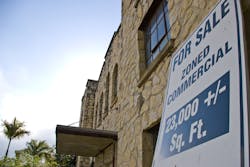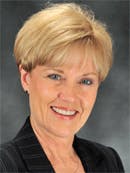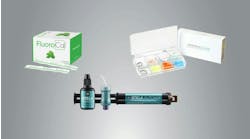By Wendy Hirai
Here are some questions for consideration:
- Location, location, location. Is the building located in a vibrant part of town where there is high visibility and a significant amount of residential and/or commercial growth, or is it located in an older core where there used to be a lot of dental practices?
- Does the outside of the building scream 1970s, or is it contemporary? Does the inside of the building scream 1970s with three or four tight, closed-in operatories and no room to expand, or has it been updated?
- Have you already realized all of the tax advantages through depreciation and interest deductions? Is the building appreciating in value, or has it actually declined in value? If so, how much will it cost to renovate?
Owners often think, "This building is my retirement income, so I'll be a landlord for a few years and then sell." Or, they might realize that they are no longer in a vibrant core area, and fearing they will be "stuck" with an empty building down the road, they require that the buyer buy both the building and the practice concurrently. Either option might be wise -- or costly!
Landlord option -- Let's explore the idea of guaranteed retirementincome from owning/leasing the building. If you own a multi-tenant building that is providing steady income, you have a valuable asset that will be attractive to a buyer or outside investor. In this case, you may not want to sell immediately. If the building is new or recently updated, and it is in a great location, renting to the buyer and giving the buyer the first right of refusal may be the best option.
However, if the building is not in a good location or it needs a lot of remodeling, it's a good bet that the buyer/tenant may move on at the end of the lease. If this happens, you will be left with a dated building in a location that makes it hard to sell. Then, rather than having a valuable retirement investment, you may have a weight around your neck that sits empty and generates maintenance, repair, and tax bills with no rent to offset the expenses. In addition, if you have already taken most of the depreciation and interest deductions and the building is no longer appreciating, it may no longer be an optimal financial investment, even if you do keep it rented. In that case, selling, or possibly using a 1031 exchange and reinvesting in another property where the tax advantages can once again accrue, may be a better long-term investment.
Selling with the practice -- Requiring the concurrent sale of building and practice together may be too much for some buyers to bite off. It also might lead to a lower price for the practice when the buyer contemplates the combined amount of the loan he or she will need to purchase both simultaneously (unless there is rental income from other tenants to help with debt service). But your goal of divesting yourself of the building will be accomplished. Then again, it is also true that some buyers will only purchase a practice if they can also own the building, especially if the mortgage payment will be considerably less than their monthly rent payment. If that is the case, you can go ahead and sell concurrently, or negotiate to give the buyer the option to purchase the following year if that would be better for your tax position.
Ultimately, your choices are 1) keep the building and collect rent, at least in the short term, 2) get rid of the building at all costs, or 3) find the buyer who would be the best fit for your staff and patients. If you answered No. 3, the best option is to stay flexible. That way, the sale of your practice is accomplished as the first priority and then you can focus on options for your building.








